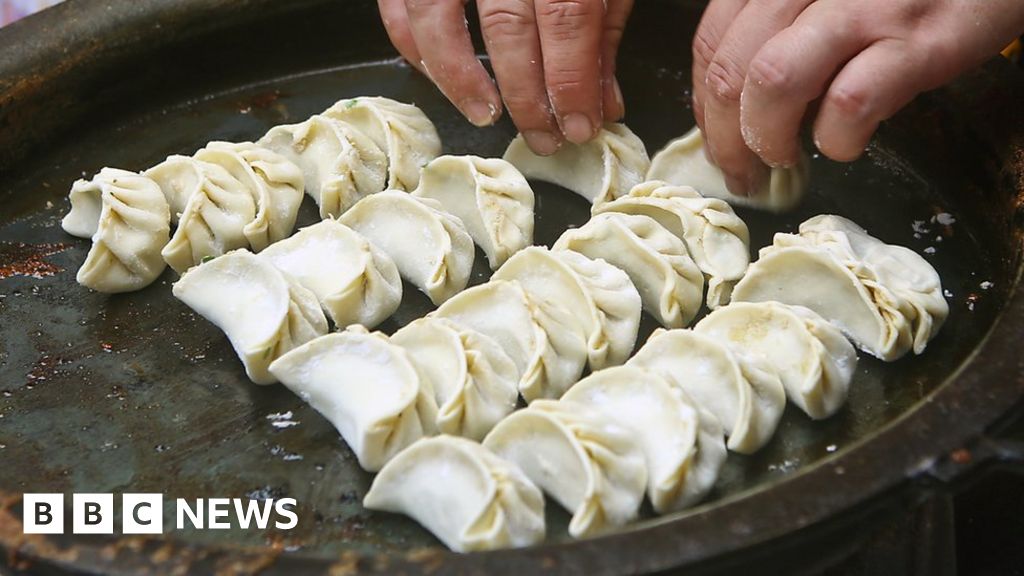A shrinking population means Japan has a shortage of workers. Many are hoping that artificial intelligence (AI) can pick up the slack.
In a country that is known to be obsessed with perfection, damaged or misshapen vegetables and fruits are hard to sell.
And if you are a specialist maker of Japanese dumplings, like the brand Osaka Ohsho, then selling a packet of gyoza with some damaged is a big no-no.
And if you are a specialist maker of Japanese dumplings, like the brand Osaka Ohsho, then selling a packet of gyoza with some damaged is a big no-no.
So it turned to technology for an answer. In January 2023, it opened a high-tech factory equipped with AI-powered cameras trained to detect any faulty gyoza on the production lines.
Today this facility makes two dumplings every second. That’s twice the speed of the other Osaka Ohsho production sites.
“By implementing AI, we have reduced the manpower on the manufacturing line by almost 30%,” says spokeswoman Keiko Handa.
The firm has also recently launched an AI-powered cooking robot called I-Robo at one of its Tokyo restaurants. As it takes time to train chefs, the company says the technology will help with the labour shortage issue.
A shrinking population means Japan has a shortage of workers. Many are hoping that artificial intelligence (AI) can pick up the slack.
And if you are a specialist maker of Japanese dumplings, like the brand Osaka Ohsho, then selling a packet of gyoza with some damaged is a big no-no.
In a country that is known to be obsessed with perfection, damaged or misshapen vegetables and fruits are hard to sell.
So it turned to technology for an answer. In January 2023, it opened a high-tech factory equipped with AI-powered cameras trained to detect any faulty gyoza on the production lines.
And if you are a specialist maker of Japanese dumplings, like the brand Osaka Ohsho, then selling a packet of gyoza with some damaged is a big no-no.
And if you are a specialist maker of Japanese dumplings, like the brand Osaka Ohsho, then selling a packet of gyoza with some damaged is a big no-no.
So it turned to technology for an answer. In January 2023, it opened a high-tech factory equipped with AI-powered cameras trained to detect any faulty gyoza on the production lines.
Today this facility makes two dumplings every second. That’s twice the speed of the other Osaka Ohsho production sites.
“By implementing AI, we have reduced the manpower on the manufacturing line by almost 30%,” says spokeswoman Keiko Handa.
The firm has also recently launched an AI-powered cooking robot called I-Robo at one of its Tokyo restaurants. As it takes time to train chefs, the company says the technology will help with the labour shortage issue.
#solve #Japans #labour #shortages
Note:- (Not all news on the site expresses the point of view of the site, but we transmit this news automatically and translate it through programmatic technology on the site and not from a human editor. The content is auto-generated from a syndicated feed.))



